Red Seal Cook-off
I thought I was a Chef, but then I challenged the Red Seal.
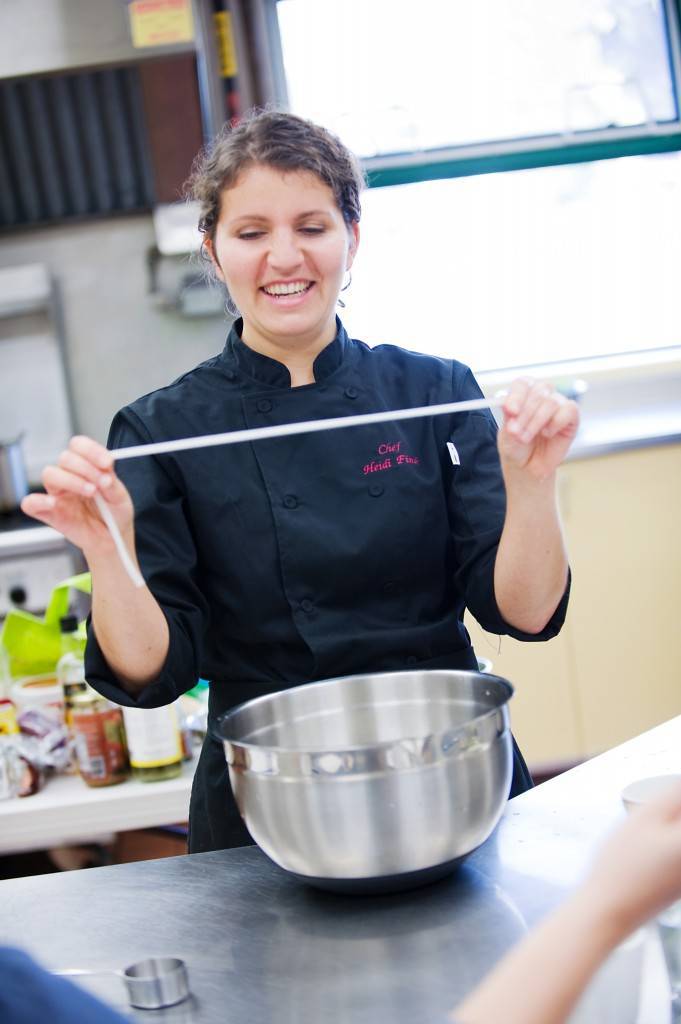
A Red Seal separates the real Chefs from the posers who call themselves “chef”. It represents, at the very least, culinary training, a three year cooking apprenticeship, and an excellent score on a nationally standardized chef test. Or, it is given to the crazies among us who don’t use life’s ordinary routes: after proving we have enough experience and know-how to be worth it, we are allowed to “challenge” the Red Seal testing process.
I guess I have never been content to do anything the easy way. As evidenced by my cooking career to date, my plans about Chef certification must have gone something like this: “To hell with cooking school and apprenticeships! I can work for years in remote treeplanting and mining camps, then claw my way up from the lowest postion in a restaurant kitchen to Exectutive Chef, before ditching it all to raise kids and start my own cooking class business. Yeah! Then I can challenge for my Red Seal! In the same month as my son’s birthday! Hell, YEAH!”
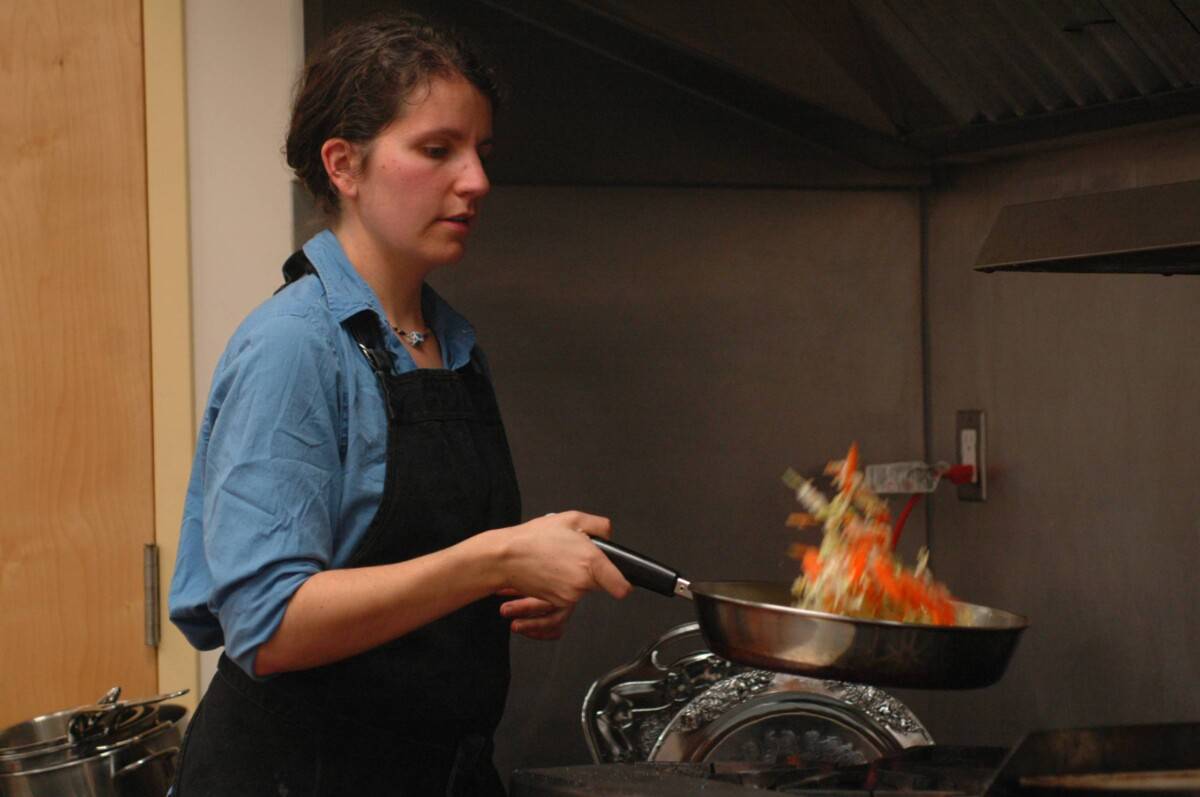
since there is no photo evidence of my Red Seal cook-off, here is a gratuitous shot of me sweating it out and looking suitably cheffy
You can see where this is going. But despite all my eggs-of-steel-making chef experience, I thought seriously about passing out on several occasions during my Red Seal ordeal. Putting together the massive and detailed portfolio to prove my worthiness was one thing. The harrowing series of interviews and tests was another. But that which nearly broke my huevas was the culminating exam: a 6-hour Iron Chef-style cooking challenge. Six hours, black box ingredients, a multi-tiered menu, no sous-chef. In an unfamiliar, ill-equipped kitchen with no dishwasher (I know, the cooks out there are hyperventilating). Complete with Chef-assessors looking over our shoulders asking trick questions and making commentary on clip-boards. And no Mark Dascacos bowing to us at the end, either. (!)
To be honest, the challenge was fair (as well as difficult) and the assessors were very helpful and friendly throughout the entire process. I am especially thankful for the guidance of Chef Bruno Marti, my main assessor. But I am really, really glad that I did not know who he was, nor how famous, until after the challenge was over.
(Heidi, one day after Iron Chef energy-sucking cook-off: “My main assessor was this guy Bruno Marti, and he help -”
E., chef friend: “Oh my God!! BRUNO MARTI?!?! Bruno Marti was your assessor?! Oh my God, I would totally have shit my pants!”
Heidi: “Why? Who is Bruno Marti?”
E., almost babbling: “Only about one of the most famous chefs in Canada!! He-won-the-Culinary-Olympics-a-whole-bunch-of-times-and-he’s-on-the…” Heidi starts to lose track here, as the stark reality of this situation sinks in “…and-everybody-knows-who-he-is!”
Heidi: speechless from shock, and secretly relieved she did not know any of this beforehand, or her crippling panic during the cook-off would have completely finished her)
Now that I am a Chef with a capitol ‘C’, I expect to be accosted in the street for my autograph while fending off papparazzi and hordes of shrieking fans holding copies of my recipe booklets.
Or not. At least I can say that I did all this and still managed to spend enough time with my children so that they remember who I am. (As evidenced by this soccer cake I made for my son’s 8th birthday party in May).

Beckham couldn’t have kicked it harder
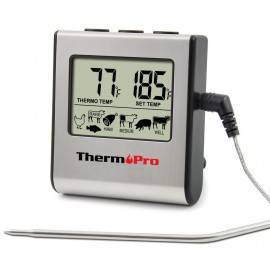
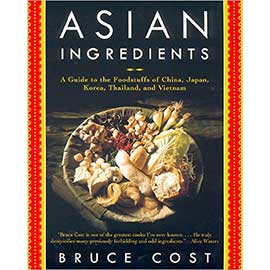
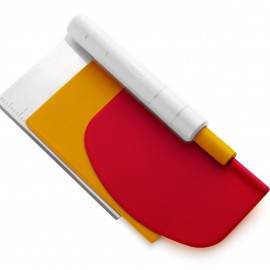
The red seal doesn’t separate one person from another. A person can have their red seal and be completely incompetent in the kitchen in a working environment. If I were working for a hotel and was tasked to find a cook for morning service I would choose the guy who’s worked in a diner for 3 years without a shred of schooling over the know it all big ego red seal cook who learned everything from a text books and a handful of classes in al a cart. The red sealed chef will most often only be marginally proficient in a few different things i.e. baking/breakfast/sauces, but really not outstanding at anything. People put way too much emphasis on the red seal when hiring and unfortunately looking over the dedicated skilled workers who couldn’t get the time or money to attend school. Whoever the wrote that the red seal separates the posers from the real ‘chefs’ is asinine. Being a chef is a lot more then having some cheesy government approval, it’s about a whole lot more.
Perfect. I love it when something I write in a blog labels me as asinine. I must be making progress!
For the record, Bob, I agree with you. A Red Seal means nothing if a cook does not have the passion and the skill. I was Executive Chef of a great restaurant before I had done any schooling or certification. I ran my own cooking business for years without it. However, having a Red Seal does not automatically make a cook a “know-it-all big ego” with only “marginal” proficiency in the kitchen. Sometimes, yes, but mostly not. I have met plenty of talented cooks in my time, both with and without a Red Seal. I would never hire based on certification alone.
And just so you know, under the new Red Seal testing rules (I was part of the pilot project for the new testing system last June), I doubt if any cook can make it through the process and get their Red Seal without being a decent cook who knows how to work in a professional kitchen.
Finally, let’s not forget that this is a blog; I was trying to be funny while explaining to non-cooks what a Red Seal symbolizes (or should symbolize).
Hi Chef Heidi,
I typed “Red Seal Chef Blog” into Google and you popped up first! Since you’re so lucky and I really enjoyed your Red Seal Cook-off article, I’m hoping you can give me some information. I’m teaching an evening course and many of my students are student chefs/bakers. One of my students says that the correct temperature for deep fat frying is 500 degrees and that his boss tells him to throw away the oil at the end of every day. I believe the correct temperature for deep fat frying should be 350 or 375 and the oil would last longer at the correct temperature. We’re also discussing the health properties of oil that is heated too much and how it might break down.
I would appreciate your thoughts on this. I need to be sure that I’m giving correct information.
Thanks so much!
Hi Dale, you are right. The correct temperature for deep-fat frying is usually between 350 and 375 degrees (occasionally a bit higher or lower depending on the food, and whether or not you are using a two-stage frying process). Most, if not all, oils would smoke and degrade quickly at 500 degrees, and most foods would burn at that temperature.
The oil would last longer at a lower temperature, BUT I would still throw out deep fat frying oil at the end of every day. After a day in the fryer being used over and over, that oil would be no good the next day. I’m sure some restaurants would use it again, but I wouldn’t.
And yes, oils do lose their health properties when heated too much. For that reason, pick saturated or monounsaturated oils for the deep fryer and deep fry only occasionally.
Congats! Bruno is my mentor and almost like a grandfather. Gotta love they guy :)
Love your writing! I’m a cook of 26 yrs now, who’s decided to write the Red Seal Exam in Ontario. Fortunately for me, all I need is a letter documenting hours with a reputable employer, and I can write the exam. I agree with Bob that experience is far more valuable in the end, but I also know that even studying for a red seal exam via some form of schooling can prove to be an asset. (Not many restaurants are going to utilize, for example, the Bechemal family of sauces as routine, so how is one to learn them, as well as countless other things?) But I’ve seen culinary students come and go. Some of them walk into a real kitchen and are shocked or dismayed…it’s busier than they imagined…the methods aren’t what they learned in the text book…they’re peeling potatoes as opposed to dazzling us all with their culinary glory…and on and on) Experience taught me to be efficient, put out quality product in every scenerio, and to be creative. I’m writing the exam simply because in my neck of the woods, the trend in hiring is basically “less than two yrs experience”; owners want to train staff THEIR way, period, (to replicate the product) and they don’t want to pay much wage in doing it. I’m hoping to ultimately leave my region and seek out employers who are more willing to pay and appreciate both experience and education. Am I on track with that thinking?
Hi Jay, I would say your thoughts are bang on. Some people, right out of cooking school, are horrible employees, and others are great. But generally, experience is much morre vaulable. I know that there are many restaurants that are looking to hire experienced cooks. Definitely, seek employment elsewhere if your education and skills are not appreciated where you are.
Thanks Heidi. I think we’re fortunate to have a passion and a creative outlet for it. I’m excited about studying for the exam, but as you said, many things can only be learned in the actual workplace, and those things are priceless. And yes, I mis-spelled Bechamel!